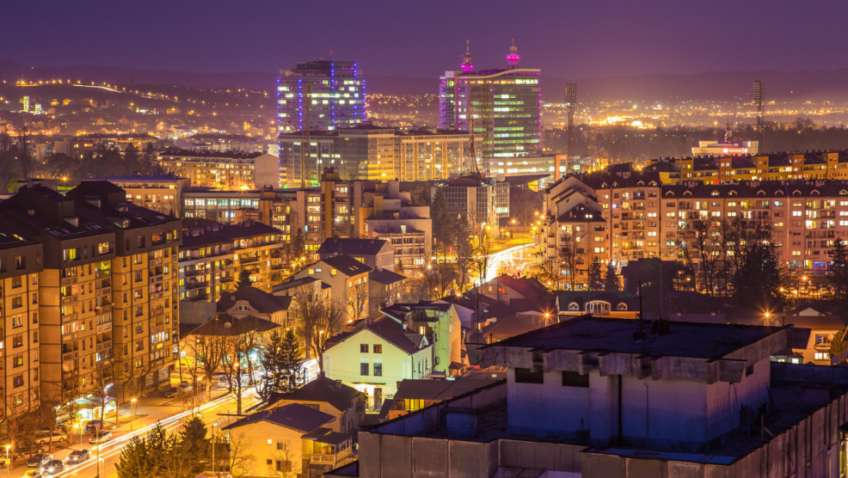After the fall of Yugoslavia, the former Yugoslav republics, striving to gain their independence, started celebrating a certain Independence Day that was formally chosen during their secession from Yugoslavia. Bosnia and Herzegovina, as one of the Yugoslav successor republics, and the state that suffered the most bloodshed and suffering during the fall of Yugoslavia, due to the ethnically mixed composition of its people, has chosen the 1st of March as its Independence Day and national holiday. The first time this day was celebrated was on March 1, 1995. However, the Independence Day of Bosnia and Herzegovina is celebrated only in one of the entities- in the Federation of Bosnia and Herzegovina (majority- Bosniak), while Republika Srpska (which is majority Serbian) rejects this holiday and celebrates its own Independence Day on the 9th of January.
Like every other year before, this year’s celebration of Republika Srpska “separate” Independence Day was not exempt from the usual controversy. The celebrations were arranged to mark the 27th anniversary of the creation of the Republika Srpska entity in 1992. The same date is hardly celebrate by Bosniaks, many of whom see it as the precursor to the start of the war a few months later. This led to two parallel realities on January 9, 2019. On the one hand, the political officials and the population in Banja Luka, did not miss the opportunity to emphasize the significance of this day for the Serbian entity in BiH with an extra dose of pride. On the other hand, the opponents to the celebration, mostly from the other entity (The Federation of BiH), once again loudly pointed on to its unconstitutionality.
The general opinion of the citizens of Republika Srpska is that the pompous celebration and decorations in red, white and blue colors (the colors of the Serbian flag), as well as the billboards with the slogan: Proud and eternal on Banja Luka’s streets are justified, since this day is of huge historical and religious relevance for the Bosnian Serbs. The 9th of January, in accordance with the Christian Orthodox calendar, is St.Stephen’s day. By celebrating their independence on this day, they also recognize St.Stephen as a protector of the Serbian entity. The National Day of Republika Srpska was in fact celebrated three days, resembling a “Russian style” parade. Hundreds of police officers, firefighters, prison guards, members of the civil protection force and bikers from the pro-Putin Russian motorcycle club the Night Wolves, marched through Banja Luka’s streets.
Following a church ceremony on the occasion of the RS Day, Milorad Dodik, the leader of the SNSD (Savez nezavisnih socijaldemokrata, transl.: Alliance of Independent Social Democrats) political party and Bosnian Serb representative in the Presidency of Bosnia and Herzegovina, emphasized his pride to act as a defender of everyone living in Republika Srpska, , regardless of their religious or national affiliation.
Among the vast number of religious and political public figures from Serbia, Russia, and Bosnia and Herzegovina, the presence of Serbian Prime Minister Ana Brnabic was of crucial importance. She was awarded the Order of the Republic of Srpska on Lent. Critics have observed this gesture with concerns, considering that this is an Order that has previously been awarded to war criminals, such as: Radovan Karadzic, Momcilo Krajisnik, Biljana Plavsic, as well as other individuals convicted to crimes related to the wars. By accepting this “honor”, Brnabic placed herself side by side with them.
There is ample evidence that celebrating the 9th of January as a National Day of Republika Srpska is recognized as unconstitutional. The Draft Decision of the Constitutional Court of Bosnia and Herzegovina and number of articles from BiH professionals and NGO activists prove that Law on holidays of Republika Srpska, the 9th January is incompatible with the Constitution of BiH, violating the non-discrimination principles of the Bosnian Constitution, the European Convention on Human Rights and the anti-racism Convention (ICERD).
Regardless of the decision of the Court, and the objections from Bosniak, EU, and US officials, the RS officials held a referendum in 2016, to garner public support for celebrating this day. In addition, in December 2016, the Republika Srpska National Assembly adopted a Law on the Day of Republika Srpska, which stipulates that January 9 is a secular holiday and that the RS government will decide how it will be celebrated.
It is unclear when, how and if the disagreements that every January 9 brings to Bosnia and Herzegovina can be resolved. Each of the two sides uses this day as occasion once again to further divide the people of BiH, thus disturbing the process of peace-building and mutual coexistence. The entities of Bosnia and Herzegovina- Federation of BiH and Republika Srpska should both try to find common ground and show greater willingness to provide mutual support in order for the country to defeat the enormous economic, political and security challenges it faces. If they fail to do so, their permanent quarrels and reluctance for compromise will keep perpetuating the post-war fragility of Bosnia and Herzegovina.


0 comments